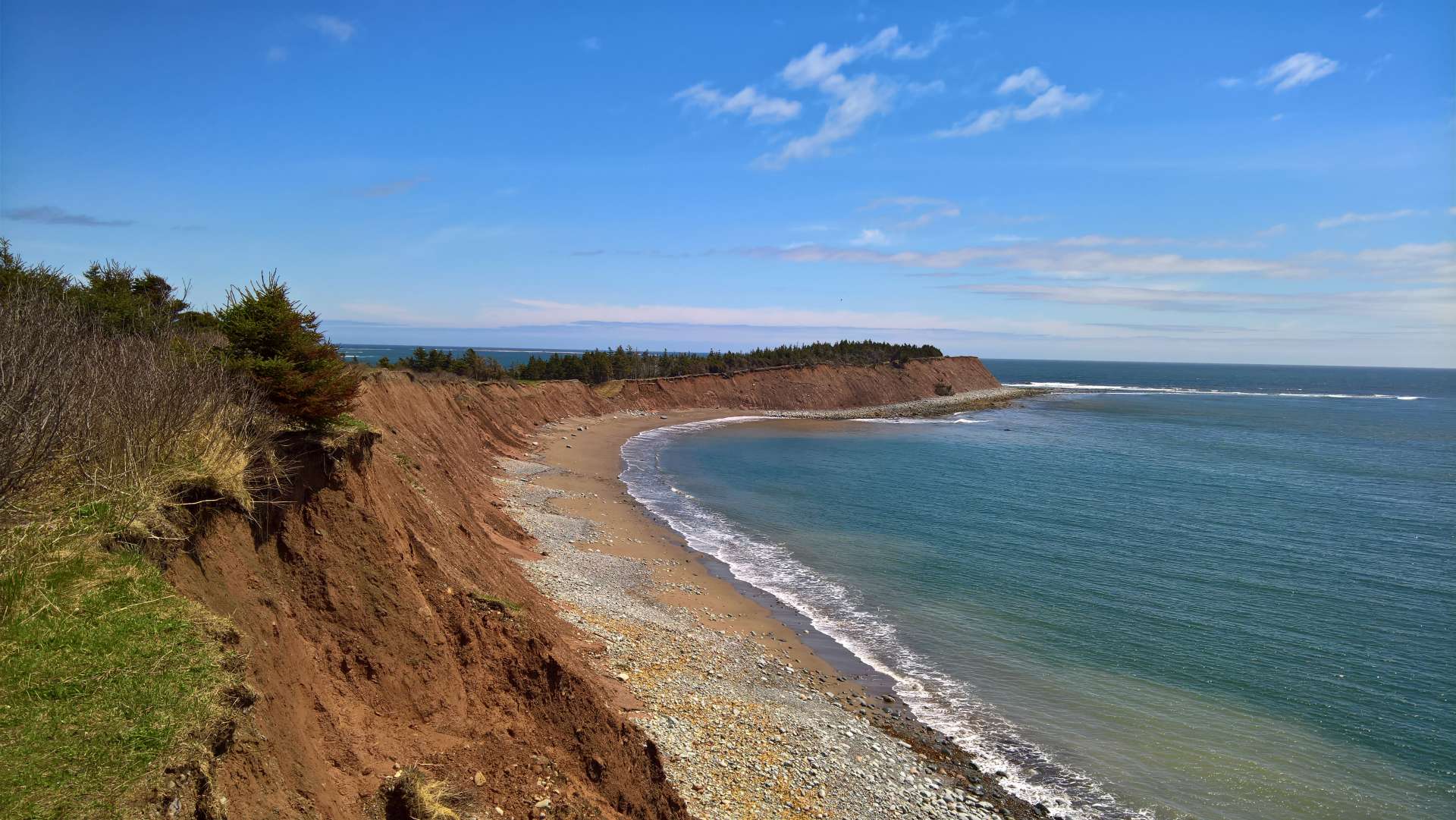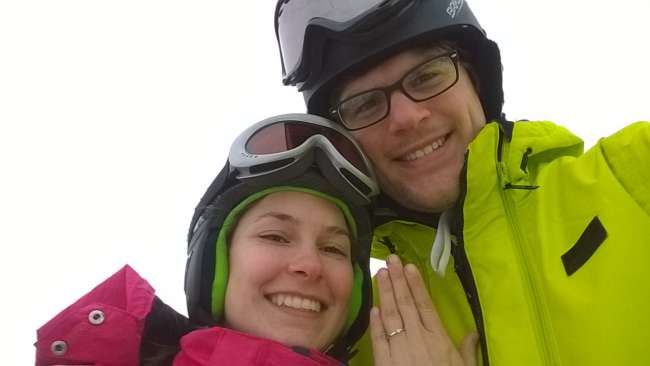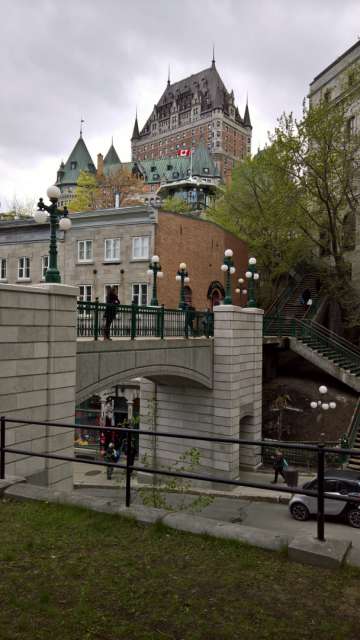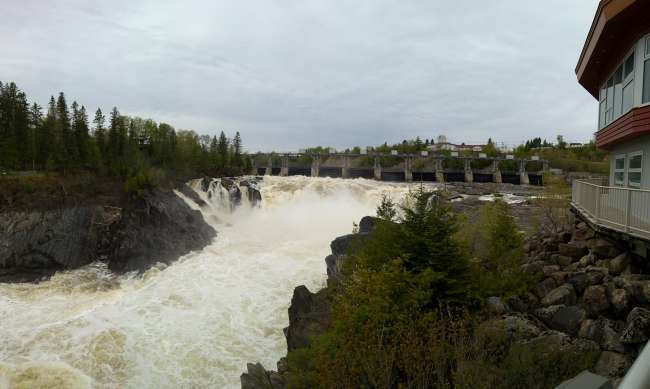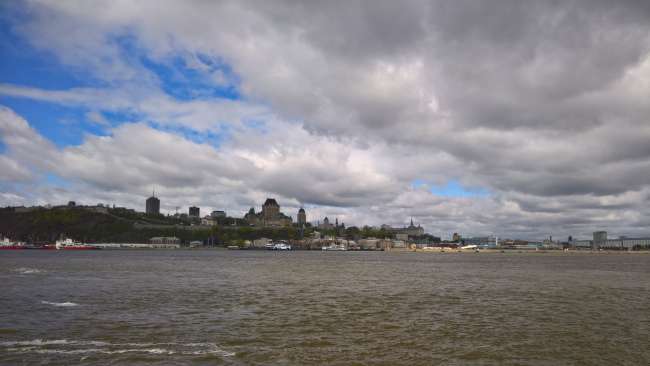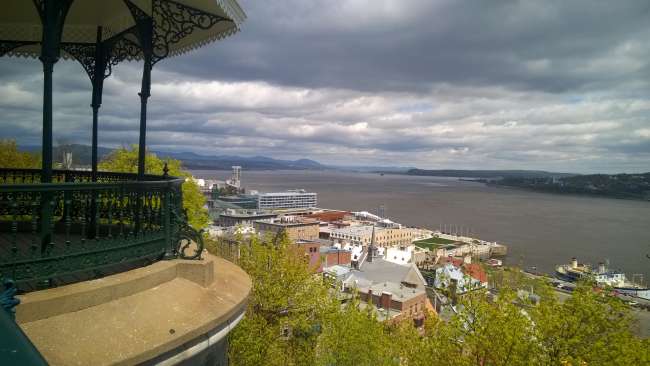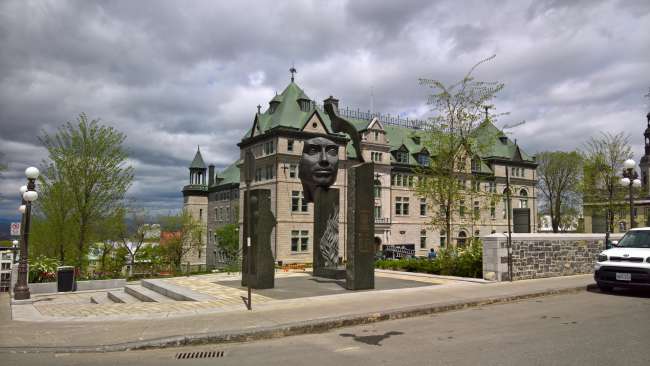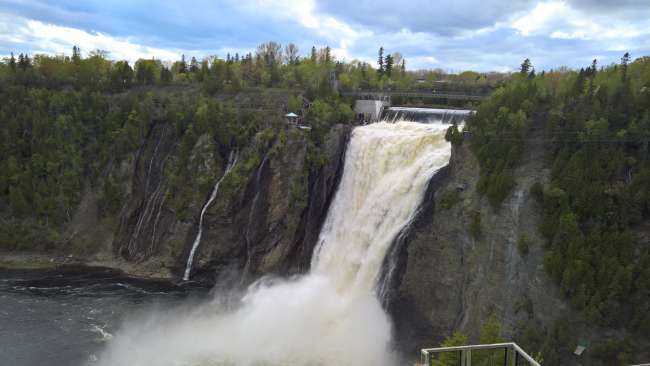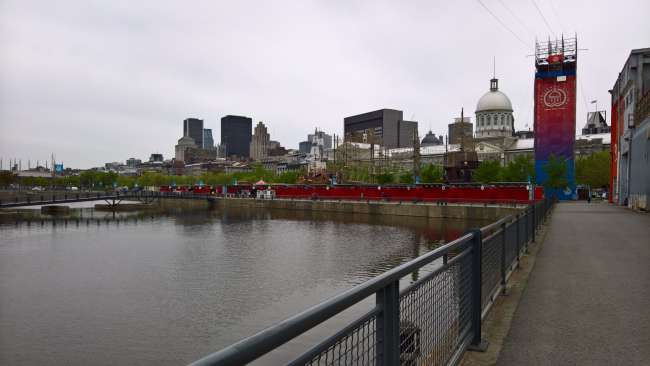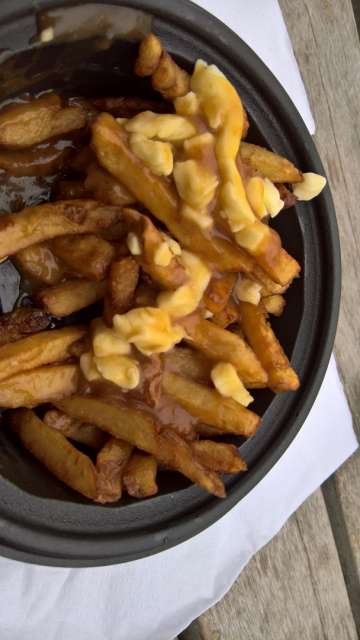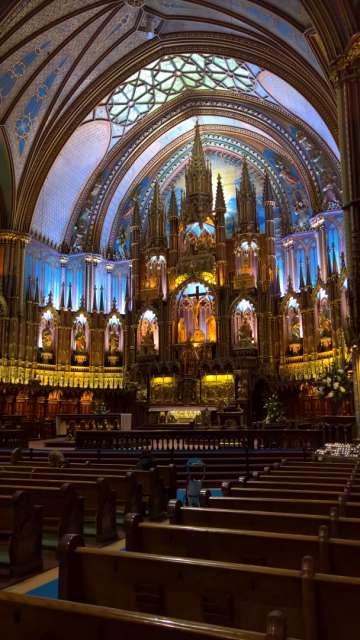Québec City and Montréal
יצא לאור: 30.05.2017
הירשם לעדכונים
From Fredericton, we continued west through the very pleasant New Brunswick on Monday morning. Our next destination was Québec City. During the drive, several signs for surrounding attractions caught our attention. We weren't particularly interested in the world's largest axe, but there was also a small town called Grand Falls. We thought if the name holds true, we could combine our fuel stop with a detour there. Following the exit across the flatlands, we wondered where the waterfall was supposed to be. Well, let's just follow the tourist information signs. And then we saw it, the waterfall. It definitely lived up to its promise, not incredibly tall, but very wide, catapulting massive amounts of water over the rocks at breathtaking speed. Unfortunately, the tourist information was not yet open for the season, otherwise we could have swung on a zipline over the waterfall. This detour was definitely worth it. We spent the night in a clearing in the woods on an access road that was just big enough for our Trudy.
To reach Québec City, we had to leave New Brunswick and enter the province of Québec. Québec is not only predominantly French-speaking, but also has a new time zone from the provincial border (currently we have a 6-hour time difference with Germany). We reached Québec City via a small ferry, which offered a great view, especially of the upper part of the old town with the oversized Château Frontenac (Québec City is not only divided into an old and a new town, but the old town is further divided into an upper and a lower part). Overall, the city is a cultural center with a very European flair. This fact was very pleasant for us. Finally, not a typical North American city. There was actually something to see (even in the new town): many beautiful old stone buildings, churches, small alleys with numerous shops offering all kinds of delicacies and heaps of art. The attention to detail is omnipresent in the old town.
About 15 km from the old town are the Montmorency Falls, an impressive waterfall with a height of over 80 m, but with less water than the one in Grand Falls. The waterfall can be crossed using a bridge that runs directly above it. This bridge is connected to a large circular path with many steps, so you can also view the waterfall from below. After the waterfall, we drove to our campsite within the city limits of Québec City, the first paid overnight stay with our Trudy. Despite its proximity to the city, it was pleasantly quiet and very clean. Continuous running water, electricity, Wi-Fi, spacious and well-maintained sanitary facilities, washing machines and dryers...what a luxury. It's remarkable how such things that should be taken for granted already feel like a luxury after being deprived of them for a long time.
After a very restful night and an extensive washing session at the campsite, we continued to Montréal. However, we spent the next night on a Walmart parking lot just before Montréal (many Walmarts here allow free overnight parking - it's worth asking). The next morning we headed to Montréal early, where we also parked for free in a residential area near the Olympic Park. Then we took the metro to the city center. After a day of walking in this 3 million city, our conclusion is rather sobering: Montréal is an unattractive big city with a few nice corners. Especially after the experience with the beautiful Québec City, Montréal was rather disappointing. Another disappointment was the specialty of the province of Québec called Poutine: fries with gravy and squeaky cheese. Unfortunately, it tastes as it looks: simply disgusting.
הירשם לעדכונים
תשובה
